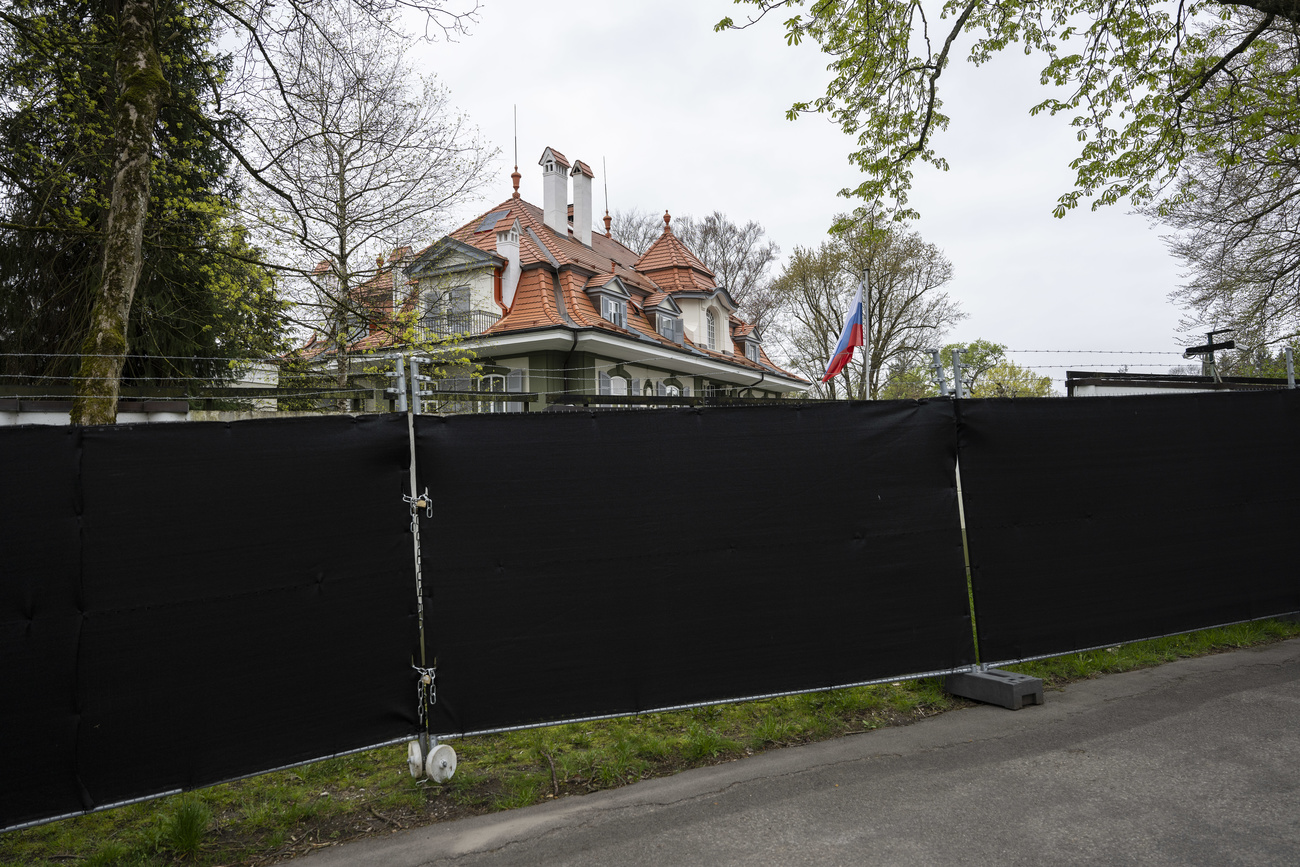
Switzerland Today
Dear Swiss Abroad,
The Swiss love going on holiday. And this summer higher living costs in general and pricier flights don’t seem to be holding them back.
According to a survey commissioned by Mastercard, 51% of Swiss residents plan to spend more on their holidays than in 2023, while 34% say they will have similar-sized budgets.
The same trend has been observed across Europe. Data shows that the share of spending on leisure activities rose from 19% in 2019 to 22% in 2023, says Mastercard.
Read on for more news and stories from Switzerland.

In the news: UNRWA, gathering of German-speaking countries, Swiss castles and zebrafish research.
- Bern says it is carefully studying a report by independent experts on the neutrality of the UN agency for Palestinian refugees (UNRWA) in the Gaza Strip, published on Monday. A decision on funding for the agency will then be taken, the foreign ministry says. Switzerland has not yet paid its 2024 contribution of CHF20 million to UNRWA.
- The interior ministers of the five German-speaking countries – Germany, Austria, Luxembourg, Liechtenstein and Switzerland – have met in Basel for talks on migration and the fight against organised crime.
- The National Association of Swiss Castles registered a new record of more than 1.3 million visitors at its 28 castles in 2023.
- Former Swiss government minister Joseph Deiss says future membership of the European Union is the only way for Switzerland to achieve its European goals.
- Change is afoot in the upper echelons of Novartis, with Giovanni Caforio set to be elected as the next chair of its board of directors at the 2025 Annual General Meeting.
- A signal that allows zebrafish to regenerate muscle cells has been discovered by Fribourg researchers which could hold promising medical potential.
- Swiss Foreign Minister Ignazio Cassis received his Austrian counterpart, Alexander Schallenberg, at Bern’s Federal Palace on Tuesday to discuss security and neutrality.

Swiss report large drop in frozen Russian assets
Switzerland has frozen Russian assets worth CHF5.8 billion ($6.36 billion), the government said today, a large drop that could increase international pressure on the neutral country.
The total, which applies to assets frozen at the end of 2023, was down from the CHF7.5 billion in assets frozen at the end of 2022.
The main reason was a decrease in the market value of the shares and other financial assets which have been blocked, said the State Secretariat for Economic Affairs (SECO).
Still, the decline is likely to spark criticism from abroad that Switzerland is not doing enough to impose sanctions designed to punish Moscow for its invasion of Ukraine.
Although Switzerland has stepped up its efforts to crack down on companies and individuals using the country to dodge sanctions, other countries want Switzerland to do more.
The frozen money is also only a fraction of the CHF150 billion in Russian assets that the Swiss Bankers Association in 2022 estimated was held by Swiss banks.
SECO also said the number of Russians whose funds are subject to being blocked in Switzerland now stands at 1,703 individuals, while the number of companies and organisations sanctioned is 421.
Switzerland has so far adopted all European sanctions measures aimed at preventing Russia from acquiring goods and technology for its army, but Bern has also forged its own path.

Pensioners flee pricey Switzerland.
The rising cost of living and expensive healthcare have become growing concerns for elderly people in Switzerland. One solution is to emigrate, reports the Tages-AnzeigerExternal link.
Some pensioners are finding it tough to make ends meet on low pensions and benefits. Tired of financial worries, more elderly Swiss citizens are settling abroad, the paper writes.
According to the Federal Statistical Office (FSO), the number of over-65s leaving Switzerland has risen by 20% over the past five years. Around 195,000 Swiss people over 65 currently live abroad.
Since 2011, more people over 55 have emigrated than moved to Switzerland – a difference of 80,000.
Thailand, Portugal, Spain and South Africa are major destinations for Swiss who have reached retirement age.
According to a study carried out as part of the National Research Center’s “On the Move – Between migration and mobility” research, most pensioners leave Switzerland due to the high cost of living and healthcare.
More

Who lives in Swiss towns and cities?
Three-quarters of residents live in urban areas, compared to one-third a century ago, according to new statistics on Swiss towns and cities.
Half of the population now lives in 170 towns and cities, and almost three-quarters in urban areas, the study by the Federal Statistical Office reported. The number of urban residents has risen steadily for over a century, with the exception of the 1980s, which were marked by an urban exodus.
In all, 60% of city dwellers use German as their main language and 22.8% French. English has developed strongly and is now the main language of 8.1% of residents. And almost a quarter of the urban population (23.1%) speaks another language in addition to the national languages and English.
Today, one-third (32%) of foreign permanent residents live in Swiss cities, more than the national average (26%). The proportion is higher in French- than in German-speaking cities.
Over the past 50 years, the proportion of young people in towns and cities has declined. By 2022, people under 19 will represent just 19.1% of the city dwellers. Geneva, Zurich, Basel and Bern have the biggest differences in the distribution of young people living in city centres and suburbs. Versoix, near Geneva, has the highest proportion of young people (25.8%). Arlesheim (canton Basel Country), on the other hand, has the highest proportion of people aged 65 or over (28.3%).
The number of people in cities who claim to have no religious affiliation has risen sharply since 2000 to around one-third of the population.

In compliance with the JTI standards
More: SWI swissinfo.ch certified by the Journalism Trust Initiative








